Why It’s Time for SEO Agencies to Go AI-First in Delivery
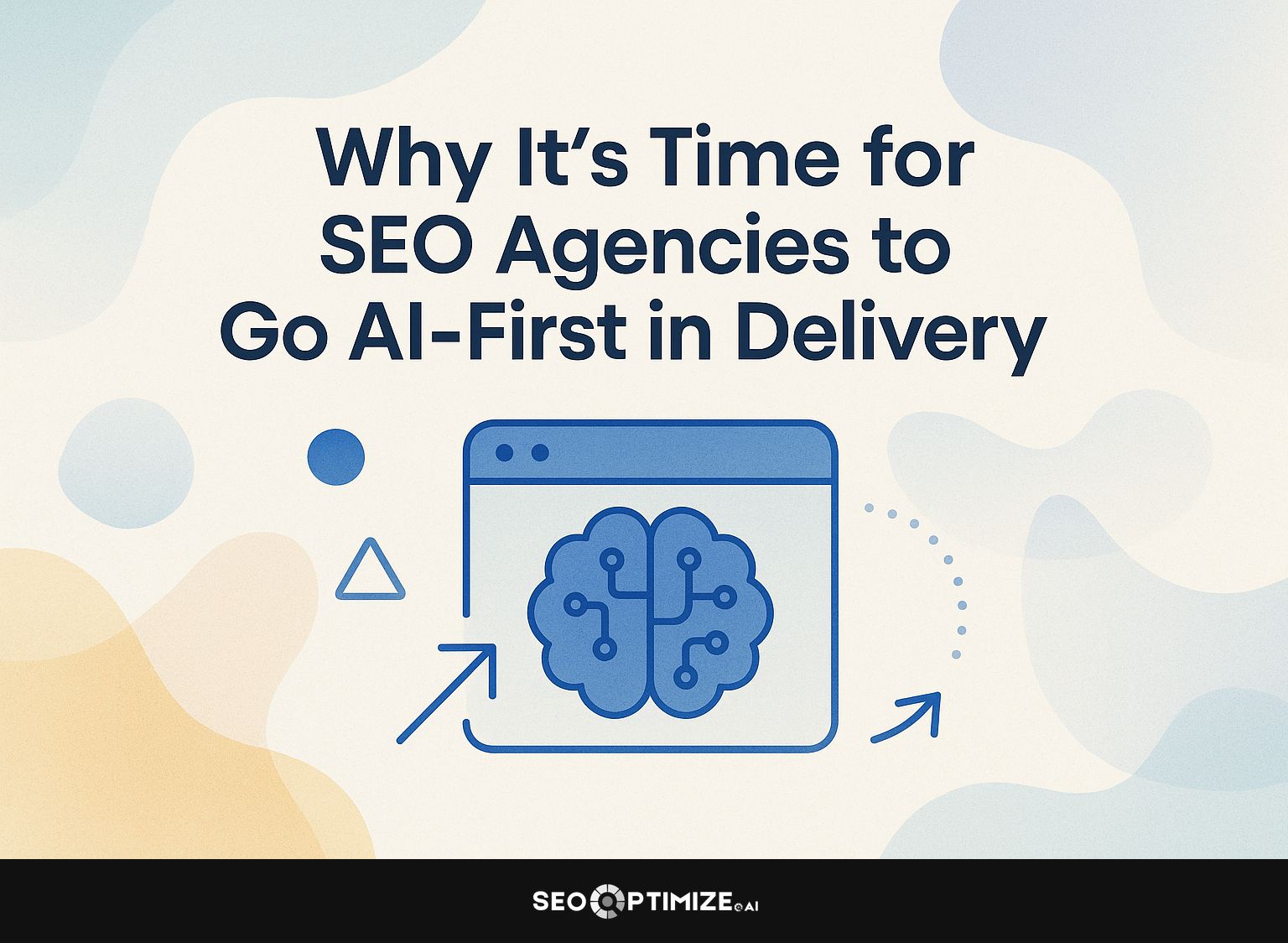
SEO agencies are increasingly challenged to produce outcomes that match the changing requirements of search engines such as Google. Using an AI-based approach to create content, upgrade pages, and automatically build links is essential. This article discusses how using AI in your SEO strategies can greatly improve how your agency works and stays ahead in a market quickly moving away from old SEO techniques. Learn why now is the time to use AI tools for unmatched success.
Key Takeaways:
- AI tools in SEO can significantly help with creating content, improving page rankings, and building backlinks through automated methods.
- Using AI tools in SEO can increase efficiency, save time, and reduce costs for agencies.
- To stay ahead, SEO agencies should use AI-based models and keep up with new trends and tools in AI-powered SEO.
What Are AI-Powered Deliverables in SEO?
AI tools in SEO offer different automatic solutions that make it easier and more effective to create content, make it better for search engines, and get backlinks.
These tools are essential for SEO agencies today, such as SEOoptimize.ai. For an extensive analysis of this trend, our comprehensive study of AI-powered SEO solutions examines the various tools available to enhance digital marketing strategies.
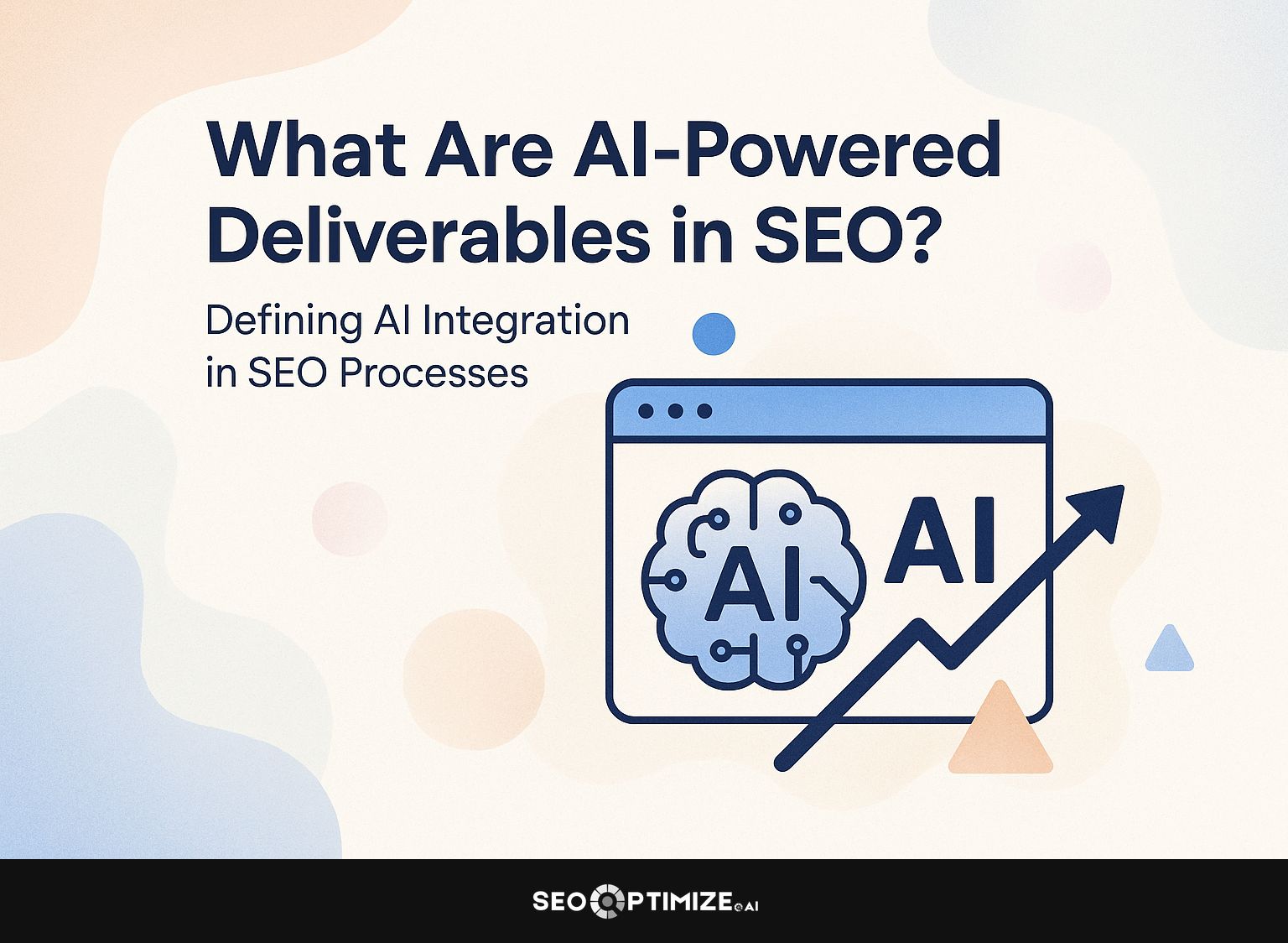
Defining AI Integration in SEO Processes
AI integration in SEO processes involves using complex algorithms and machine learning tools to carry out and improve tasks that SEO experts typically handle.
For example, tools like ChatGPT and Gemini can improve keyword research by reviewing large data sets to find popular keywords.
ChatGPT can create blog content focused on these keywords, while Gemini provides information on how well the content is doing using analytics.
Using these tools in your workflow can make tasks easier:
- Start with ChatGPT to brainstorm and draft content.
- Then use Gemini to monitor how well it works and improve plans using current performance data.
This method saves time and improves SEO results.
How Can AI Improve Content Creation for SEO?
AI greatly helps in creating content for SEO by allowing content to be made automatically. This lets agencies produce a large amount of good content while keeping it relevant and interesting. For those interested in optimizing such content, understanding what content optimization entails is crucial.
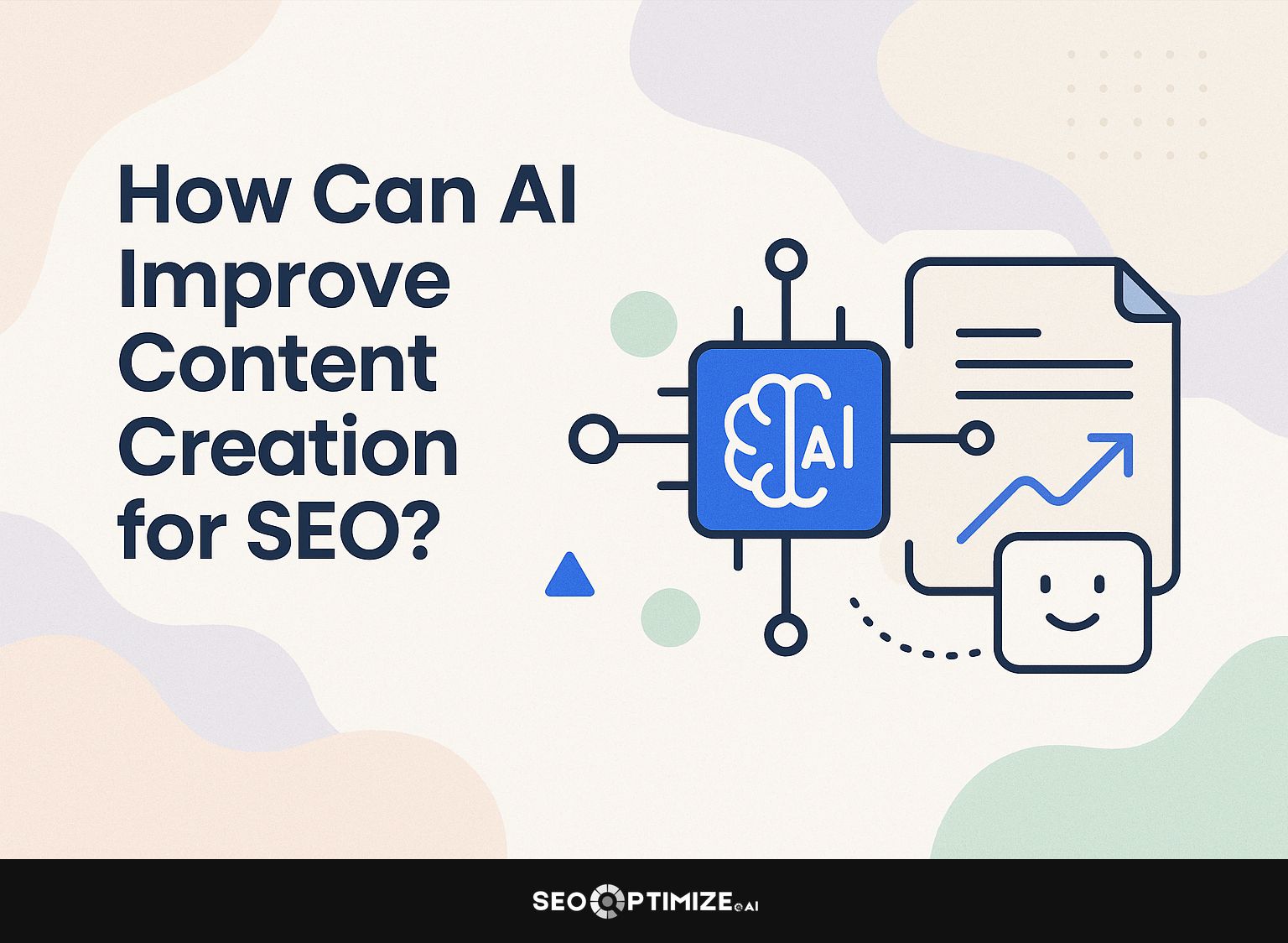
Benefits of Automatic Content Creation
Automatic content creation improves productivity, enabling SEO companies to create large amounts of interesting content fast, which is important for staying competitive.
To effectively set up automatic content creation, agencies can look into tools like Autoblogging AI and Jasper AI. These tools helps create articles aimed at SEO by just entering keywords. Tools like SEMrush help with keyword research, ensuring the content aligns with common search terms.
Begin by creating a clear plan for your content; choose important subjects that matter to your audience, and then use tools to help write while keeping a step for checking quality. This method saves time and matches your work with current market needs.
How Does AI Improve Current Pages?
AI improves existing web pages by using detailed analysis and changes to algorithms. This helps to improve on-page SEO elements, leading to better visibility and a better user experience. Understanding what Semantic SEO entails can further enhance these improvements by focusing on the meaning and intent behind search queries.
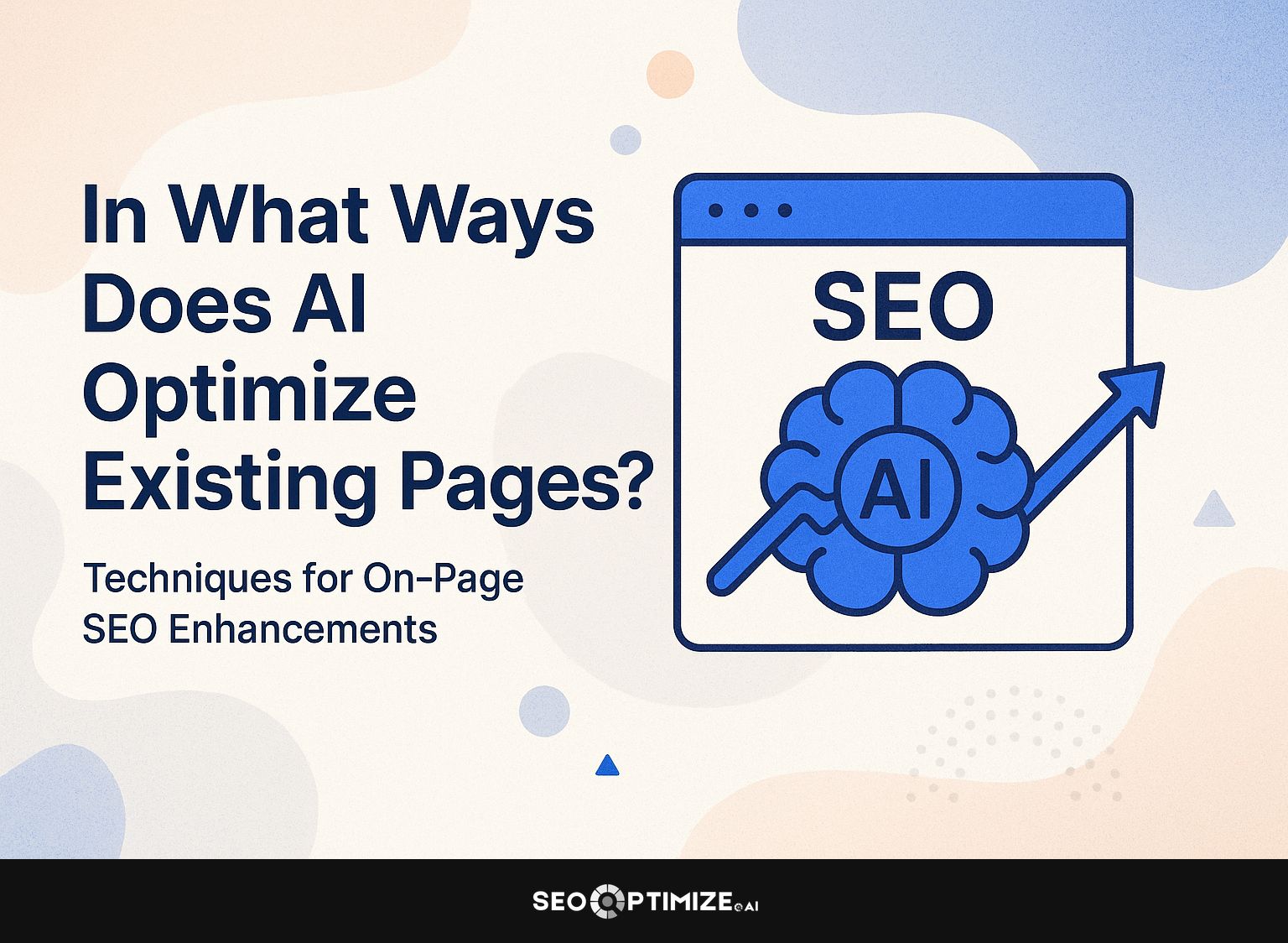
Techniques for On-Page SEO Enhancements
Using AI for on-page SEO means selecting appropriate keywords, arranging content clearly, and applying structured data to improve search engine positions.
To implement these techniques, start with keyword optimization by utilizing tools like SEMrush or Ahrefs to identify high-performing keywords related to your content.
Next, pay attention to how you organize content; make sure your headings (H1, H2, H3) show a clear order.
For structured data, use Google’s Structured Data Markup Helper to define key elements like articles or products on your page. This method increases your content’s visibility in search results, making it appealing to both users and search engines.
Can AI Change How We Build Backlinks?
AI speeds up communication, helping websites gain more links and strengthen their reputation and visibility in search results. Understanding the difference between nofollow and dofollow links can further enhance these strategies by determining how search engines perceive and value these links.
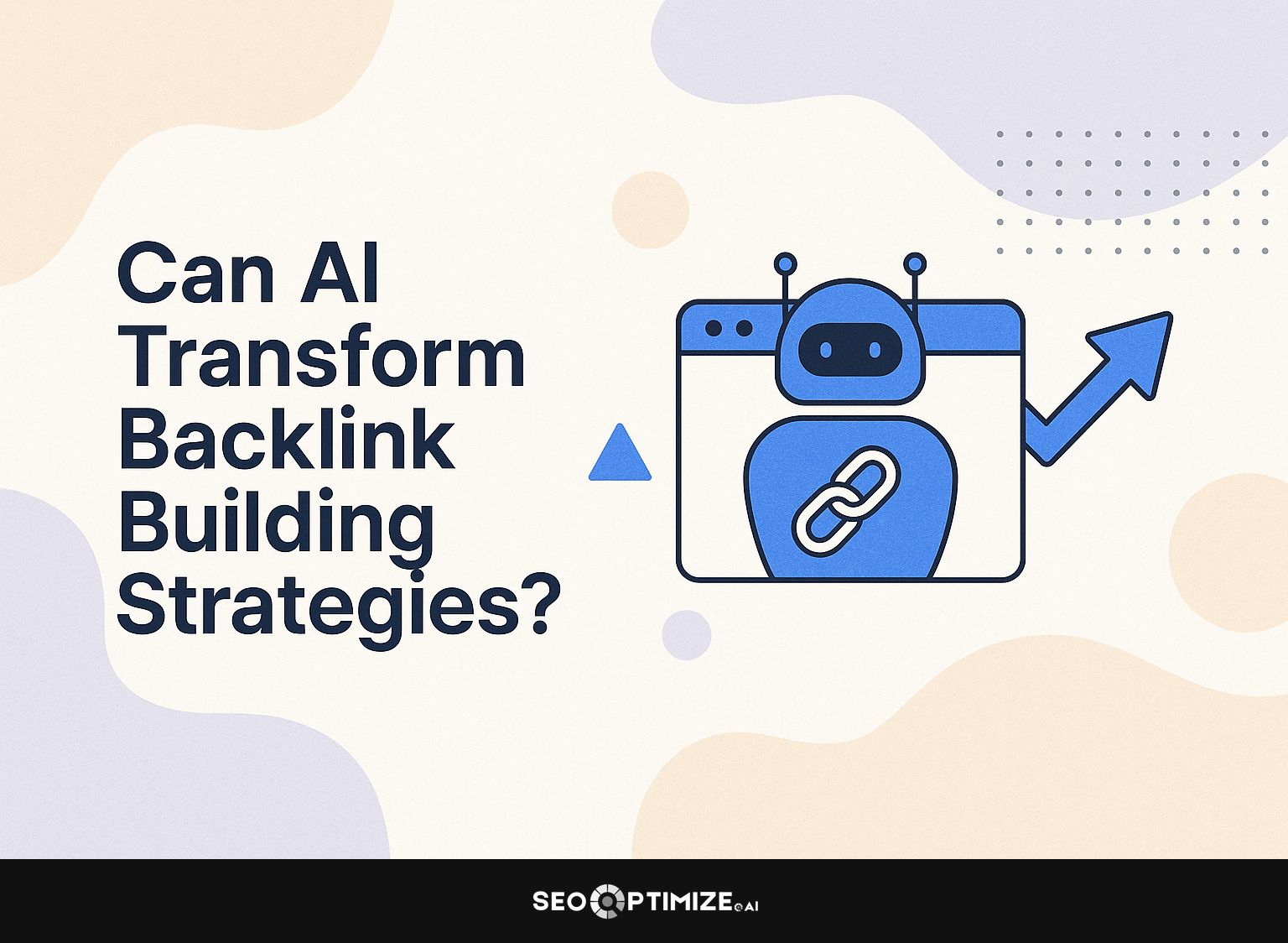
Automated Outreach and Its Advantages
Using tools to handle outreach tasks reduces the time spent on getting backlinks, allowing agencies to concentrate on producing and arranging high-quality content.
- To set up a system for sending messages automatically, start by picking a reliable tool like Pitchbox or BuzzStream. Both let you handle campaigns and monitor responses effectively.
- Next, build a targeted prospect list using criteria such as domain authority and relevance to your niche.
- Design personalized email templates that highlight the value of your content to increase engagement. Schedule follow-ups automatically after a week for those who haven’t responded.
This process saves time and increases your likelihood of getting high-quality backlinks.
Why Is AI Efficiency Important for SEO Agencies?
AI efficiency is important for SEO agencies because it helps them manage resources better, providing excellent services while keeping expenses in check.
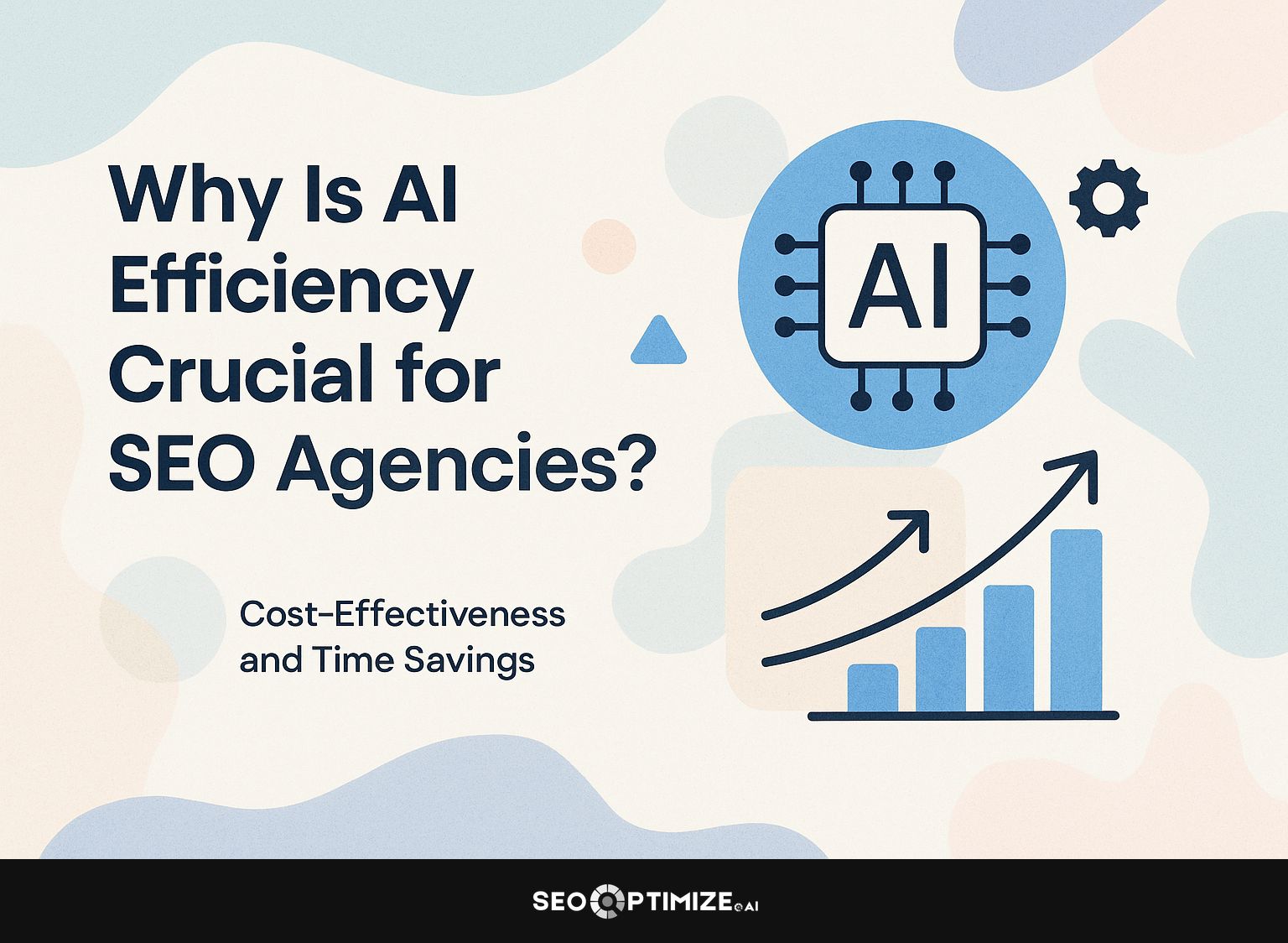
Cost-Effectiveness and Time Savings
By using AI to handle repetitive tasks, agencies spend less on operations and save a lot of time, allowing them to concentrate on strategy and creative work.
AI tools like Zapier can automatically manage data entry between different platforms, saving up to 10 hours each week. Similarly, integrating ChatGPT into customer service can handle inquiries instantly, decreasing response times by 70%.
Agencies can use these tools to simplify processes:
- Identify tasks for automation;
- Choose suitable AI solutions;
- Monitor outcomes to refine strategies.
This approach improves efficiency while letting agencies expand their services without needing to raise costs in the same way.
What Challenges Do SEO Agencies Face Without AI?
Without AI, SEO agencies face major difficulties that slow their ability to keep up with fast-changing algorithms and growing competition in online marketing.
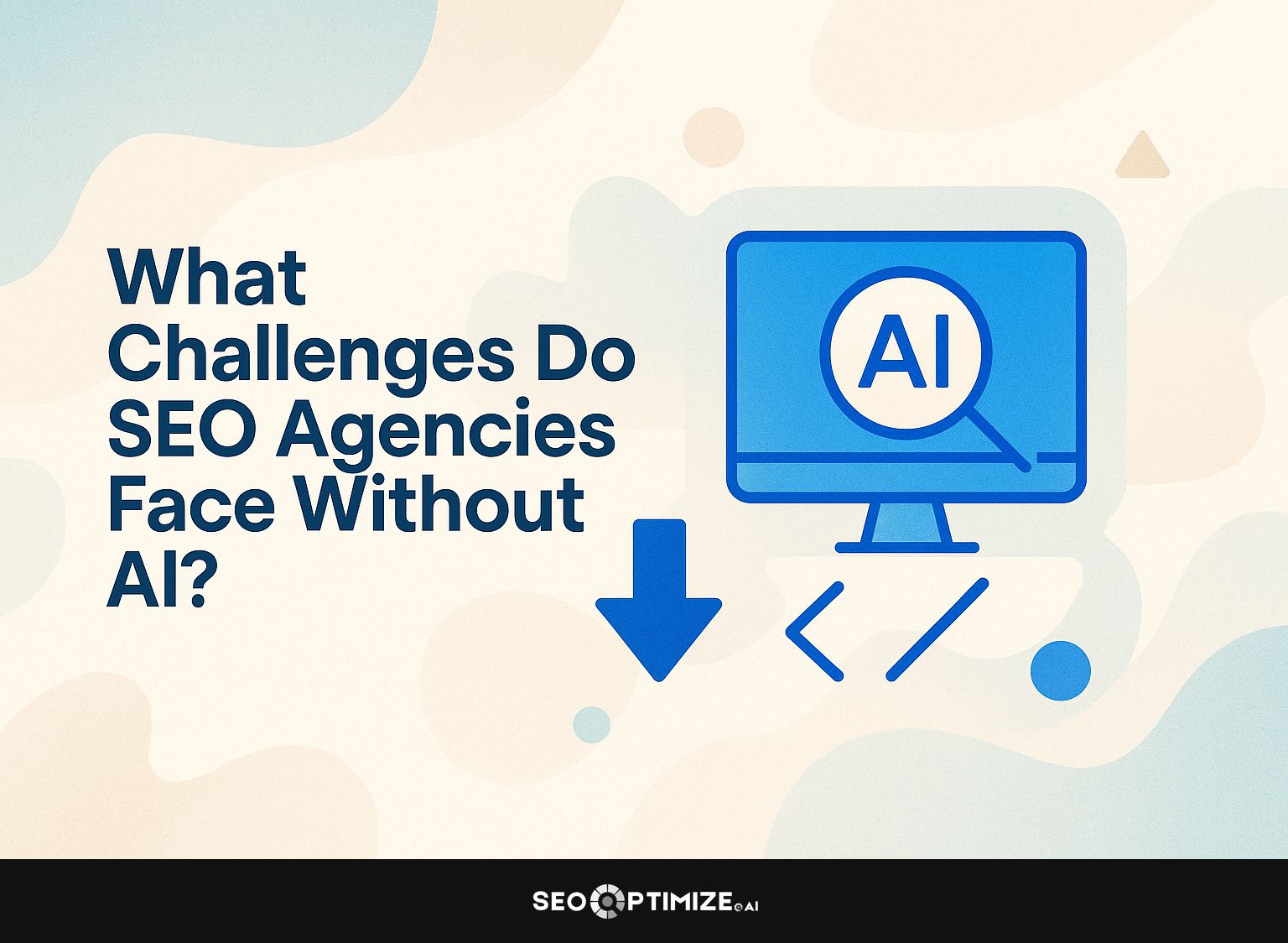
Comparative Analysis of Traditional vs. AI-Driven Approaches
A comparative analysis reveals stark differences between traditional SEO methods and AI-driven strategies, highlighting the advantages of automation and advanced analytics.
Traditional SEO usually depends on doing keyword research by hand and improving content, which can take a lot of time and may not be very exact.
In contrast, AI-based methods use tools such as Clearscope or Surfer SEO to examine competitor content and recommend important keywords immediately.
For example, while a traditional method may require weeks to analyze changes in search patterns, AI can quickly change strategies based on how users behave. This improves accuracy and makes scaling easier, helping businesses quickly respond to changes in the market.
How Do Agencies Transition to AI-First Models?
Transitioning to an AI-first model requires strategic planning and a commitment to embracing new technologies within SEO agencies to remain competitive.
Start by assessing your current capabilities, including team skills and technology infrastructure. Identify gaps and opportunities, then select AI tools suited to your needs, such as SEMrush for analytics or Surfer SEO for content optimization.
Allocate 2-4 weeks for tool implementation, allowing time for staff training. Create a detailed training plan with 1-2 hours each week for a month, so the whole team can become familiar with the new technologies and use them effectively.
What Tools Are Available for AI-Driven SEO?
There are many tools to help with AI-based SEO, each with special features that focus on different parts of the SEO process.
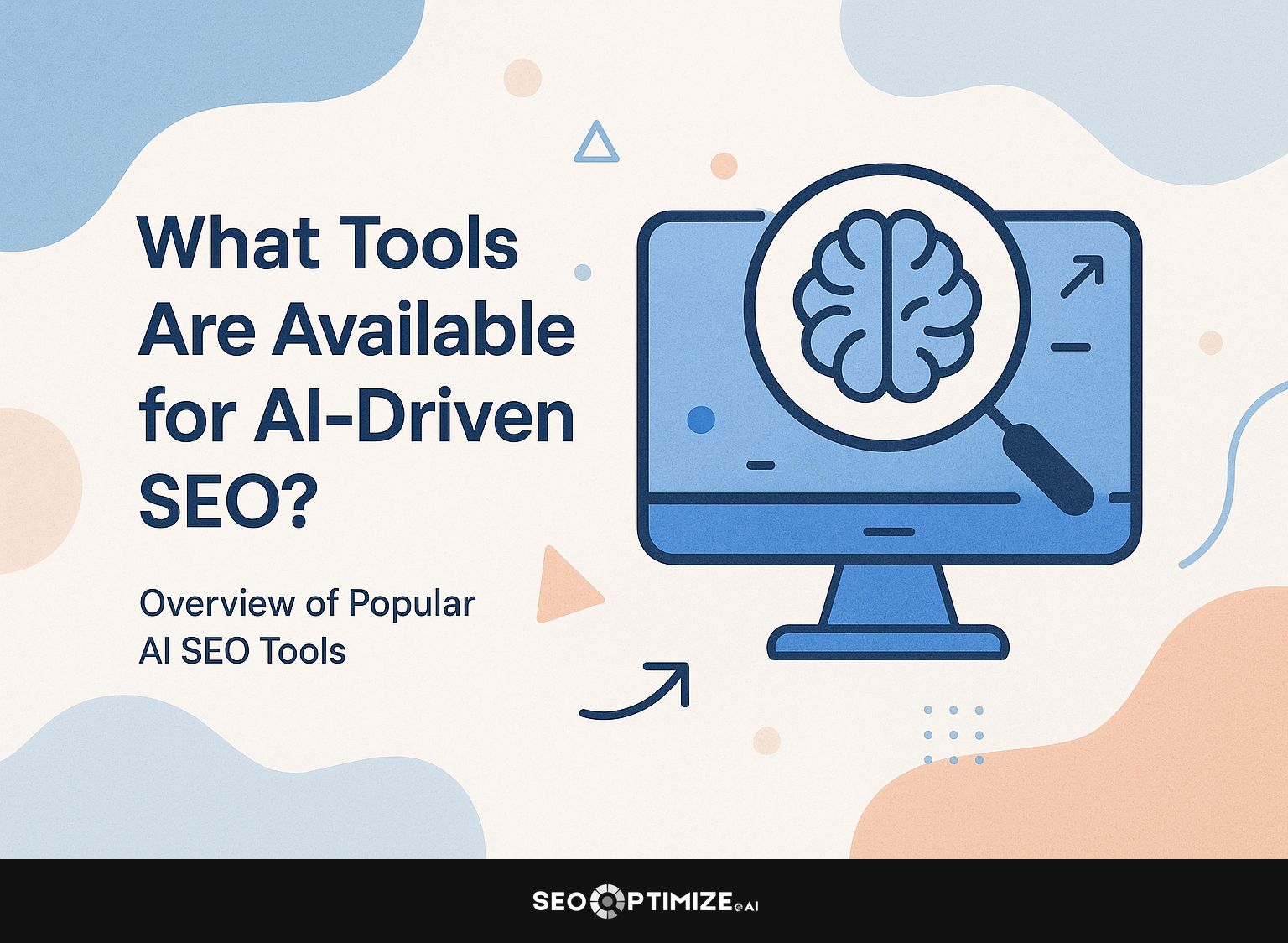
Overview of Popular AI SEO Tools
AI tools like ChatGPT and Gemini help agencies make their work processes more efficient and improve the quality of content.
Various leading AI SEO tools can help agencies improve their content strategy.
For instance, Autoblogging AI combines keyword research with content optimization, helping you adjust your writing in real-time based on competitive analysis. Meanwhile, Clearscope focuses on creating content outlines that increase relevance and clarity. MarketMuse offers advanced topic modeling, which can guide content creation based on audience interests.
When choosing a tool, think about what is most important for you: improving content, examining keywords, or detailed planning. This will make sure that your investment matches your agency’s goals.
How Can Agencies Measure the Success of AI Integration?
Tracking how well AI works in SEO requires using key performance measures that match business and marketing goals.
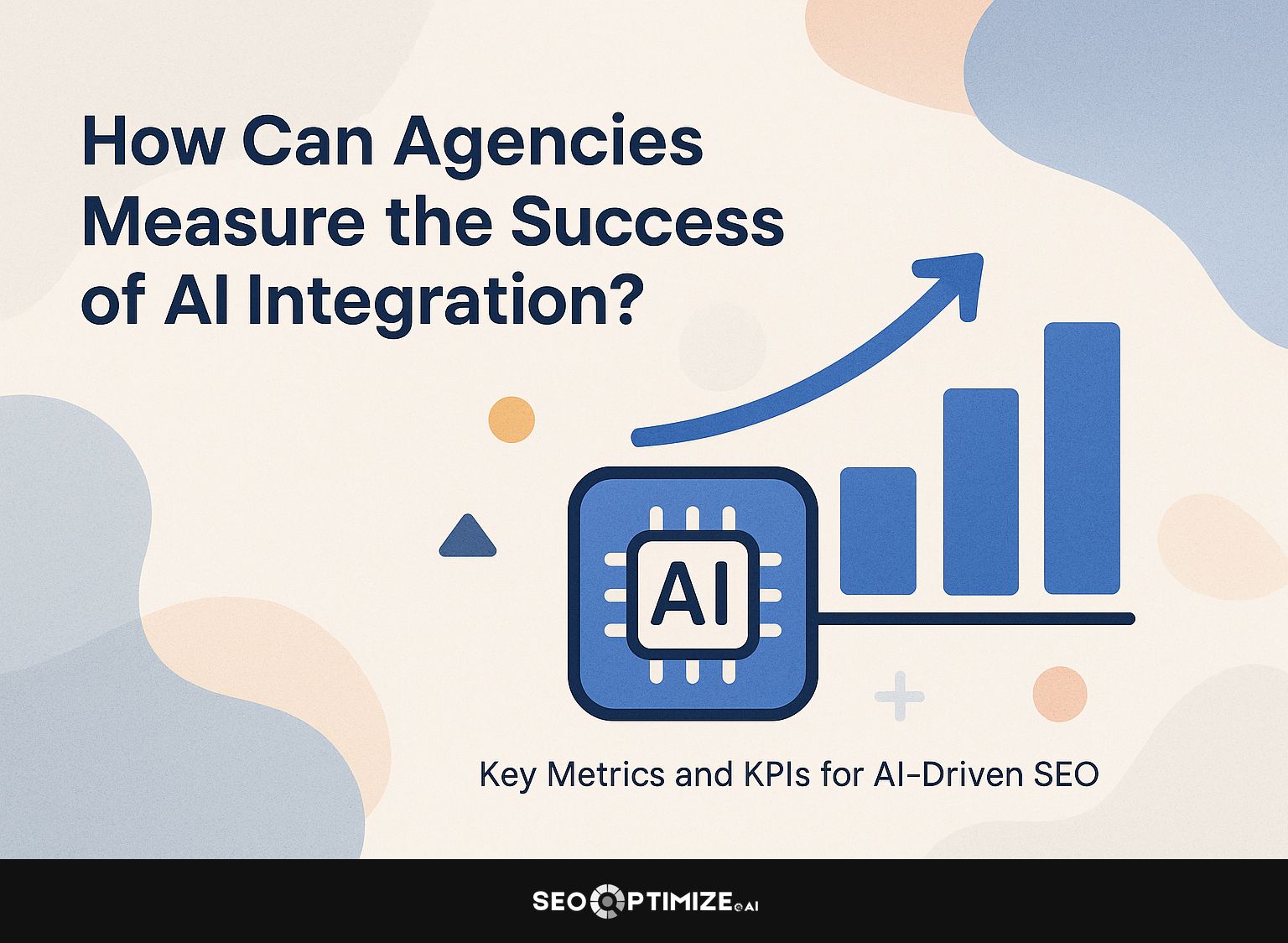
Key Metrics and KPIs for AI-Driven SEO
Key metrics for evaluating AI-driven SEO success include changes in organic traffic, backlink acquisition rates, and improvements in keyword rankings.
To closely track these KPIs, go to Google Analytics and look at the Acquisition section to see the rise in organic traffic.
Set up a dashboard to include specific metrics like Sessions, Users, and Bounce Rate. For getting backlinks, tools like Ahrefs or Moz can show new links and how they affect domain authority.
Regular keyword tracking can be achieved using SEMrush or Google Search Console. Analyzing these metrics quarterly will help identify trends and necessary adjustments in your AI-based SEO strategies.
What Lies Ahead for AI in SEO?
AI advancements in SEO are expected to positively impact how agencies manage search engine optimization.
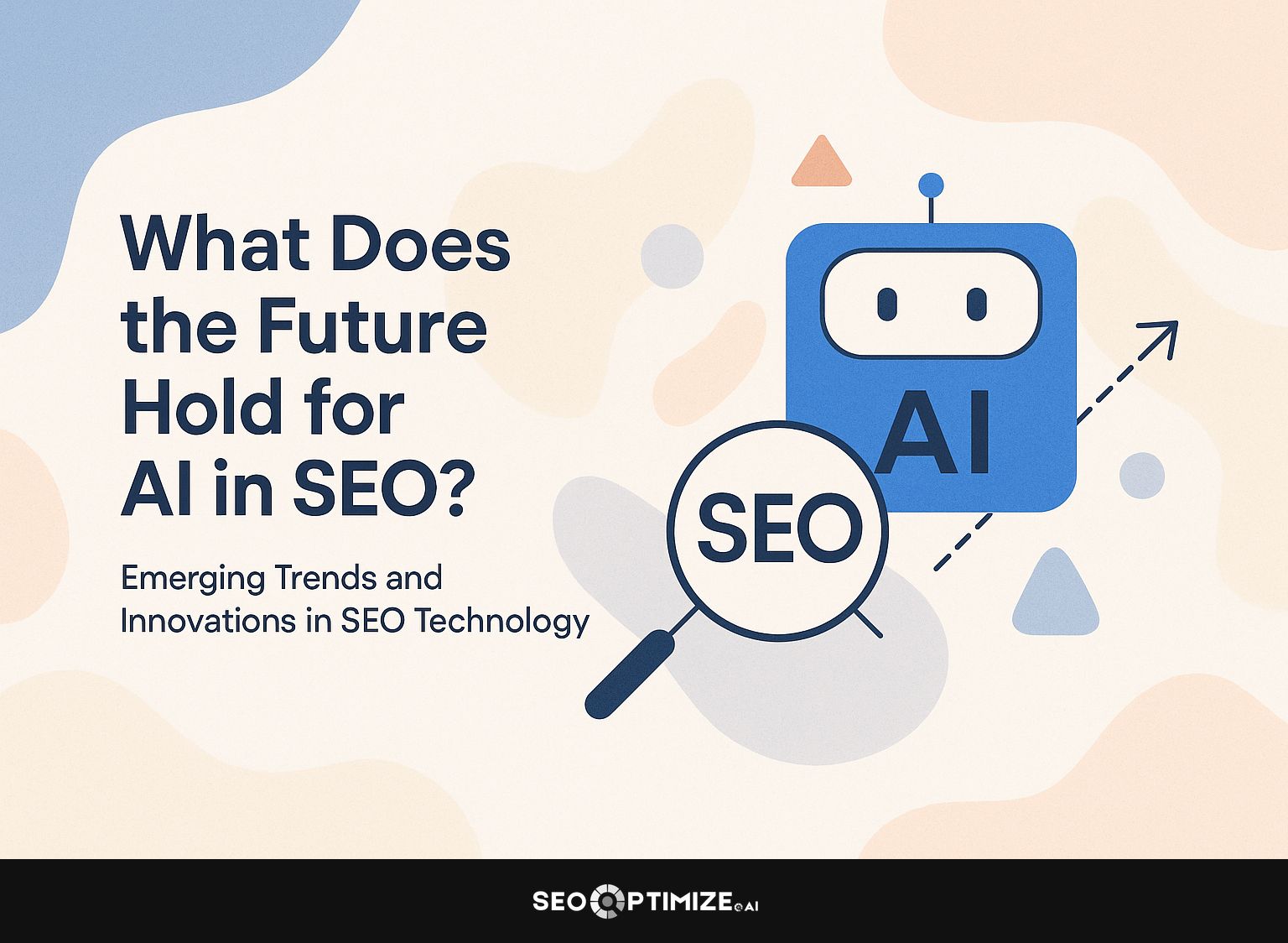
Emerging Trends and Innovations in SEO Technology
New developments like semantic SEO and the use of AI agents in creating content will change how agencies develop their SEO strategies.
Semantic SEO tries to figure out what users are looking for and what their search terms mean. This can help improve search rankings and user engagement.
Using tools like Autoblogging AI or Clearscope or MarketMuse can make content better by concentrating on similar topics and increasing its relevance.
Concurrently, AI tools such as Autoblogging AI or ChatGPT are used to create content, enabling agencies to quickly produce draft articles that match target keywords.
This integration makes writing faster, encourages new ideas, and reduces costs, leading to improved SEO campaigns.
Bridging Question: How Can Agencies Stay Ahead with AI?
To remain competitive, SEO agencies must keep up with AI technologies and regularly update their strategies based on current industry information.
A practical approach includes implementing tools like Google Analytics for data tracking and HubSpot for CRM and marketing automation.
Regular training sessions on platforms such as Coursera or Udemy can keep your team updated on the latest SEO techniques and AI tools.
Participating in industry forums and webinars helps agencies learn new information and connect with other professionals.
Creating a habit of regularly improving and trying new methods helps agencies stay flexible and quickly react to change.
